|
|
|
Sort Order |
|
|
|
Items / Page
|
|
|
|
|
|
|
| Srl | Item |
| 1 |
ID:
166562
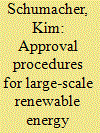

|
|
|
|
|
| Summary/Abstract |
This paper analyses the commonalities and variances of environmental approval procedures in four OECD territories, Japan, New Zealand (NZ), the European Union (EU), and the United States (US). In order to streamline regulatory approval frameworks for large-scale renewable energy (LS-RE) installations, outlining the strengths, as well as the weaknesses of the current systems in place, is crucial in determining what components to alter in line with national and regional particularities. The jurisdictional juxtaposition facilitates the identification of administrative burdens, which could increase environmental review-related costs for developers and prolong the entire approval process. Environmental impact assessment (EIA) frameworks, a major component of the LS-RE approval process, suffer from administrative fracturing between the local, regional, and national levels as well as between various government agencies. In combination with strong reservations from local civil society stakeholders, the results revealed some of the flaws of the current LS-RE project approval systems in place. The EIA frameworks and reform efforts in all four jurisdictions illustrate the importance of consolidated and comprehensive frameworks to reduce the amount of planning uncertainties for developers. Utilising regulatory tools such as mandatory timeframes, scoping, clear screening thresholds and priority assessment categories for LS-RE projects, could result in robust EIA processes based on unified regulatory procedures for climate change mitigating energy projects, inside as well as outside of OECD jurisdictions.
|
|
|
|
|
|
|
|
|
|
|
|
|
|
|
|
| 2 |
ID:
073521
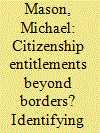

|
|
|
|
|
| Publication |
2006.
|
| Summary/Abstract |
argue that although environmental law is state centric in nature, there is a growing body of international environmental law that allows at least some input from public actors in implementing key substantive and procedural obligations. The evolution of these environmental entitlements is linked to the global diffusion of democratic norms of civic participation, the application of the nondiscrimination principle in both public and private international law, and the cosmopolitan reach of human rights claims. It is at the intersection of individual and nongovernmental organization (NGO) rights with interstate obligations that transnational citizenship entitlements are emerging¾notably equal opportunities for access and redress for affected publics. I critically survey relevant multilateral environmental agreements to gauge the significance of rule making bestowing entitlements on publics affected by transboundary and global environmental harm.
|
|
|
|
|
|
|
|
|
|
|
|
|
|
|
|
| 3 |
ID:
190652


|
|
|
|
|
| Summary/Abstract |
Ecosystem-based approaches to marine management, which integrate marine law and policy across sectors, communities, and scales, are increasingly advocated for in international policy debates and scholarly literature. We highlight critical and timely opportunities in Aotearoa New Zealand’s evolving legal context to support an ecosystem-based approach across fisheries regulation, biodiversity conservation, environmental effects management, and Indigenous or customary rights. Given the scale of proposed law reform affecting the ocean in Aotearoa New Zealand, there are important global lessons to be elucidated from (and for) the Aotearoa New Zealand experience, revealing the potential for law to center the health of ocean ecosystems and related people in integrated marine decision making.
|
|
|
|
|
|
|
|
|
|
|
|
|
|
|
|
| 4 |
ID:
154682
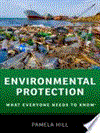

|
|
|
|
|
| Publication |
New York, Oxford University Press, 2017.
|
| Description |
xviii, 235p.pbk
|
| Standard Number |
9780190223076
|
|
|
|
|
|
|
|
|
|
|
|
Copies: C:1/I:0,R:0,Q:0
Circulation
| Accession# | Call# | Current Location | Status | Policy | Location |
| 059151 | 363.7/HIL 059151 | Main | On Shelf | General | |
|
|
|
|
| 5 |
ID:
104571
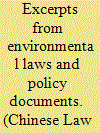

|
|
|
| 6 |
ID:
001217


|
|
|
|
|
| Publication |
Cambridge, MIT Press, 1998.
|
| Description |
xxv, 737p.
|
| Standard Number |
0261220571
|
|
|
|
|
|
|
|
|
|
|
|
Copies: C:1/I:0,R:0,Q:0
Circulation
| Accession# | Call# | Current Location | Status | Policy | Location |
| 040751 | 363.70526/VIC 040751 | Main | On Shelf | General | |
|
|
|
|
| 7 |
ID:
097155
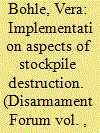

|
|
|
| 8 |
ID:
074644
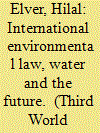

|
|
|
|
|
| Publication |
2006.
|
| Summary/Abstract |
This article focuses on the development of international law principles in the area of fresh water, one of the major emerging concerns at the global level. These principles, from the period of abundance to scarcity of fresh water, are evaluated parallel to changing economic, geopolitical and environmental conditions of world politics. Currently over a billion people in the Third World do not have access to safe drinking water. Is current international law capable of addressing the challenge of global water scarcity in 21st century? I will evaluate the moral principles of international human rights, and economic principles of free market ideology to solve the problem of access to fresh water resources for all for the future.
|
|
|
|
|
|
|
|
|
|
|
|
|
|
|
|
| 9 |
ID:
193255


|
|
|
|
|
| Summary/Abstract |
Article 8 of the Paris Agreement introduces obligations upon the Parties to the Agreement “with respect to Loss and Damage associated with adverse impacts of climate change.” According to Paragraph 52 of the Conference of the Parties’ Decision, Article 8 is not a basis for liability or compensation. Therefore, the problem is whether violation of obligations leads to a state responsibility. Using a dogmatic method, this research contends that “recognizing the significance of averting, minimizing, and addressing Loss and Damage” means acceptance of responsibility for a breach of obligations. Although the means of seeking reparation would not be compensation, States are obliged to eliminate sources of damage and take precautionary measures to address loss and damage. Notwithstanding this, placing the issue of loss and damage under the Agreement into a separate article can reflect to a great extent the significance of the matter.
|
|
|
|
|
|
|
|
|
|
|
|
|
|
|
|
|
|
|
|
|